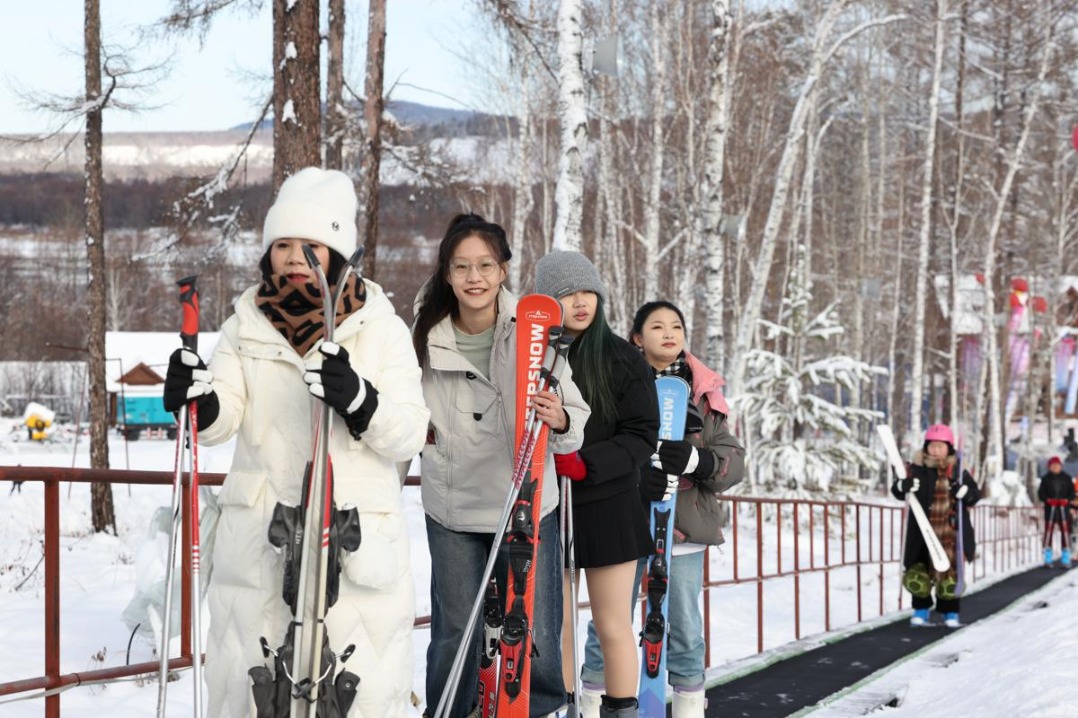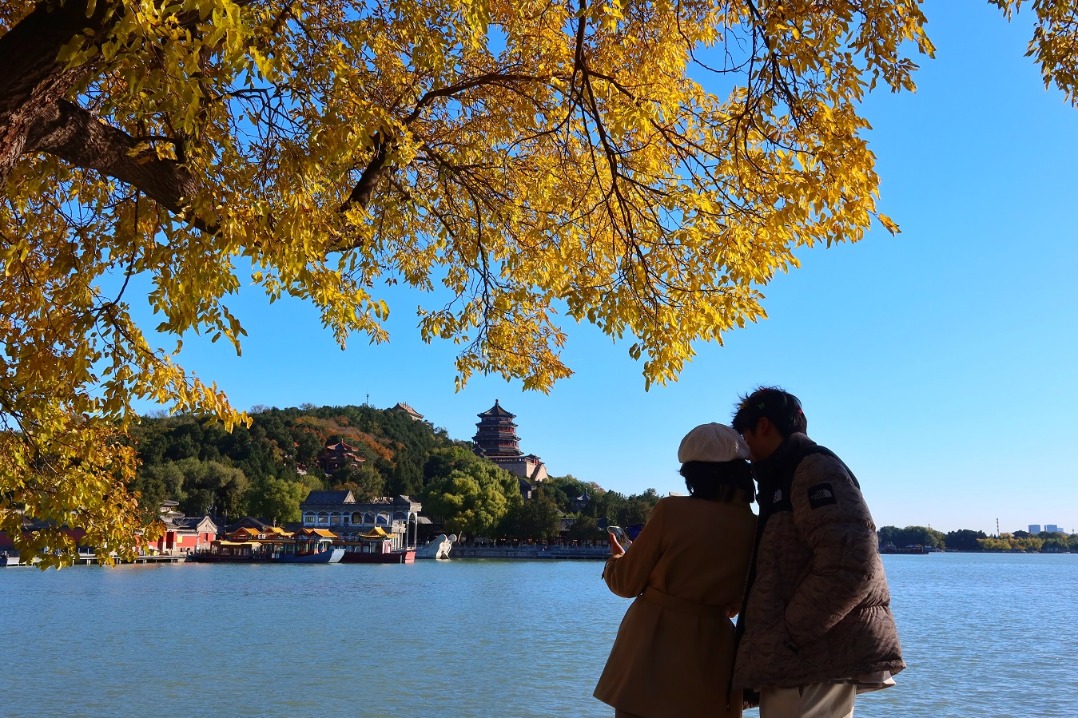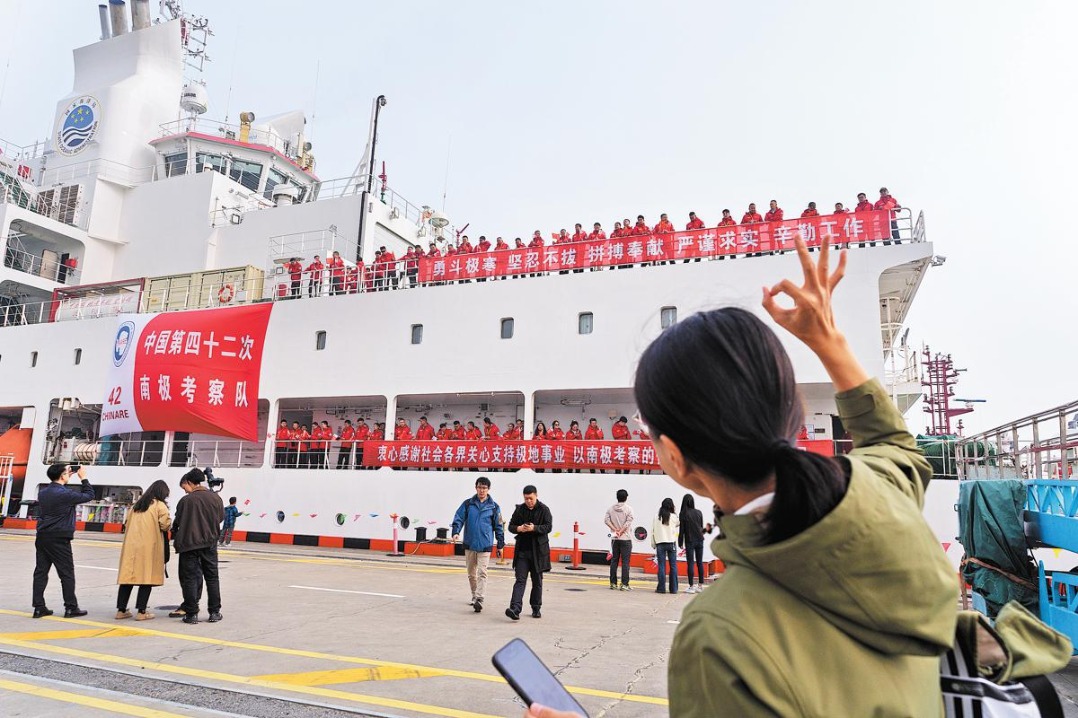Mainland talent get easier access to SARs
High-tech, advanced manufacturing firms to receive preferential quotas

Talented professionals from extended regions of the Chinese mainland are set to enjoy relaxed multiple-entry permits to Hong Kong and Macao, according to an announcement on Monday.
The initiative is among 10 measures set to streamline border immigration controls rolled out by China's National Immigration Administration, which are designed to "support high-level opening-up and high-quality development".
Effective on Wednesday, eligible mainland professionals — including high-level talent and specialists in research, culture, education, healthcare and law — can apply for multiple-entry permits to the two special administrative regions. The permits are valid for up to five years, allowing stays of no more than 30 days per visit, with applications based on official talent certification.
The policy, previously piloted in Beijing, Shanghai and the Guangdong-Hong Kong-Macao Greater Bay Area, will be extended to cover the entire Yangtze River Delta and the Beijing-Tianjin-Hebei region, as well as all national pilot free trade zones across the country.
Similar relaxed measures will also be offered to talent working in the Shenzhen Park of the Hetao Shenzhen-Hong Kong Science and Technology Innovation Cooperation Zone. Mainland professionals working in the park's research institutions and tech enterprises can, upon registration with the park's management, obtain a three-year, multiple-entry talent permit for Hong Kong and Macao without submitting additional proof of their talent credentials.
High-tech and advanced manufacturing firms will receive preferential quotas for such permits.
Emerging and start-up companies within the zone will be exempt from first-year tax revenue requirements when applying for business travel permits to the two SARs.
Dedicated lanes and streamlined arrangements will be established at Huanggang and Futian ports for the cooperation zone to provide fast-track clearance for frequent travelers.
And a green channel will be set up for vehicles transporting research supplies from the park to expedite customs clearance.
Also starting on Wednesday, the administration will significantly expand the use of facial recognition technology systems to cover several key land crossings in Shenzhen and Zhuhai, including Huanggang, Luohu, and the Hong Kong-Zhuhai-Macao Bridge port, following successful implementation at Shenzhen Bay and Gongbei ports.
Eligible travelers age 14 and above can use these channels, including mainland residents with valid multi-entry endorsements, Hong Kong and Macao residents with mainland travel permits, and Taiwan residents holding five-year travel passes. All users must consent to providing and verifying facial and fingerprint data.
In a move to assist families, mainland residents in Hong Kong or Macao on a family visit visa will now be able to apply to extend their stay directly within the SARs starting Nov 20. Applications must be submitted at least seven working days before the expiration of the current stay period.
Jesse Shang Hailong, founder of the Hong Kong Top Talent Services Association, expects the expanded policy to bring "tens of thousands" of new mainland professionals to Hong Kong, and help them "go global" by leveraging Hong Kong's unique position as an offshore bridgehead for international connectivity.
Noting that the new measures have given professionals at the Shenzhen park a more convenient way to visit Hong Kong compared with other Shenzhen residents, Shang said it will substantially boost researcher mobility and cross-border collaboration as the Hong Kong park of the Hetao zone prepares its official opening before the end of the year.
stacyshi@chinadailyhk.com





































